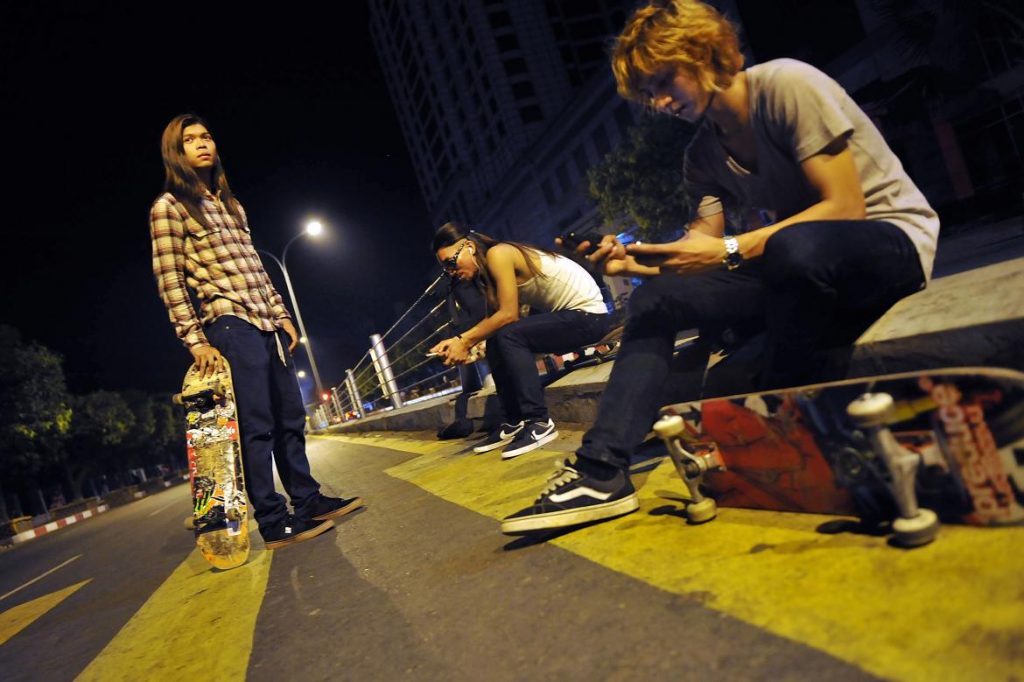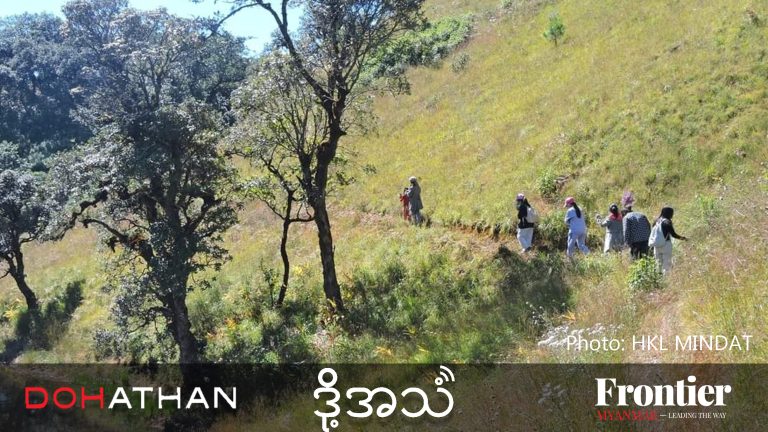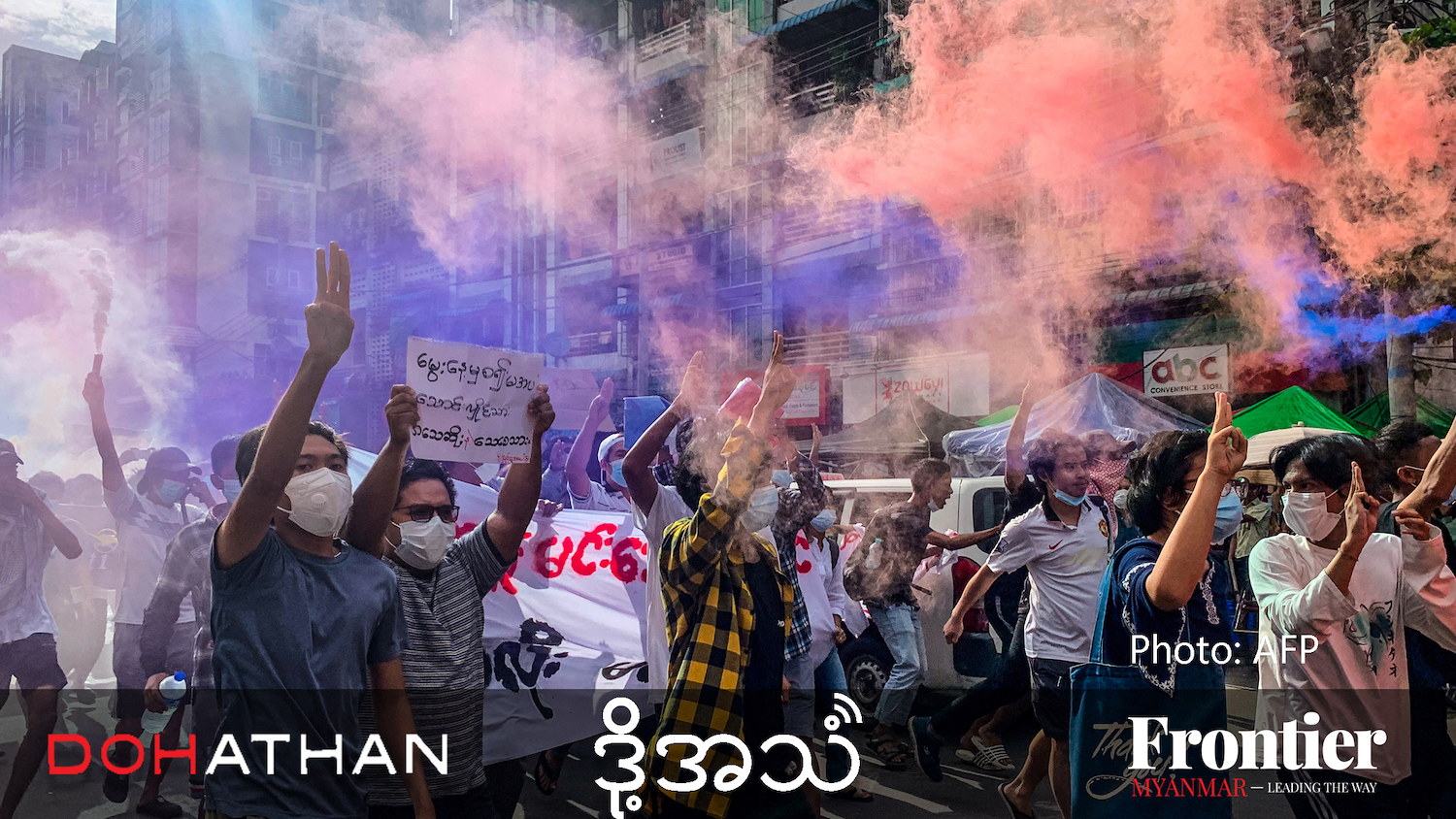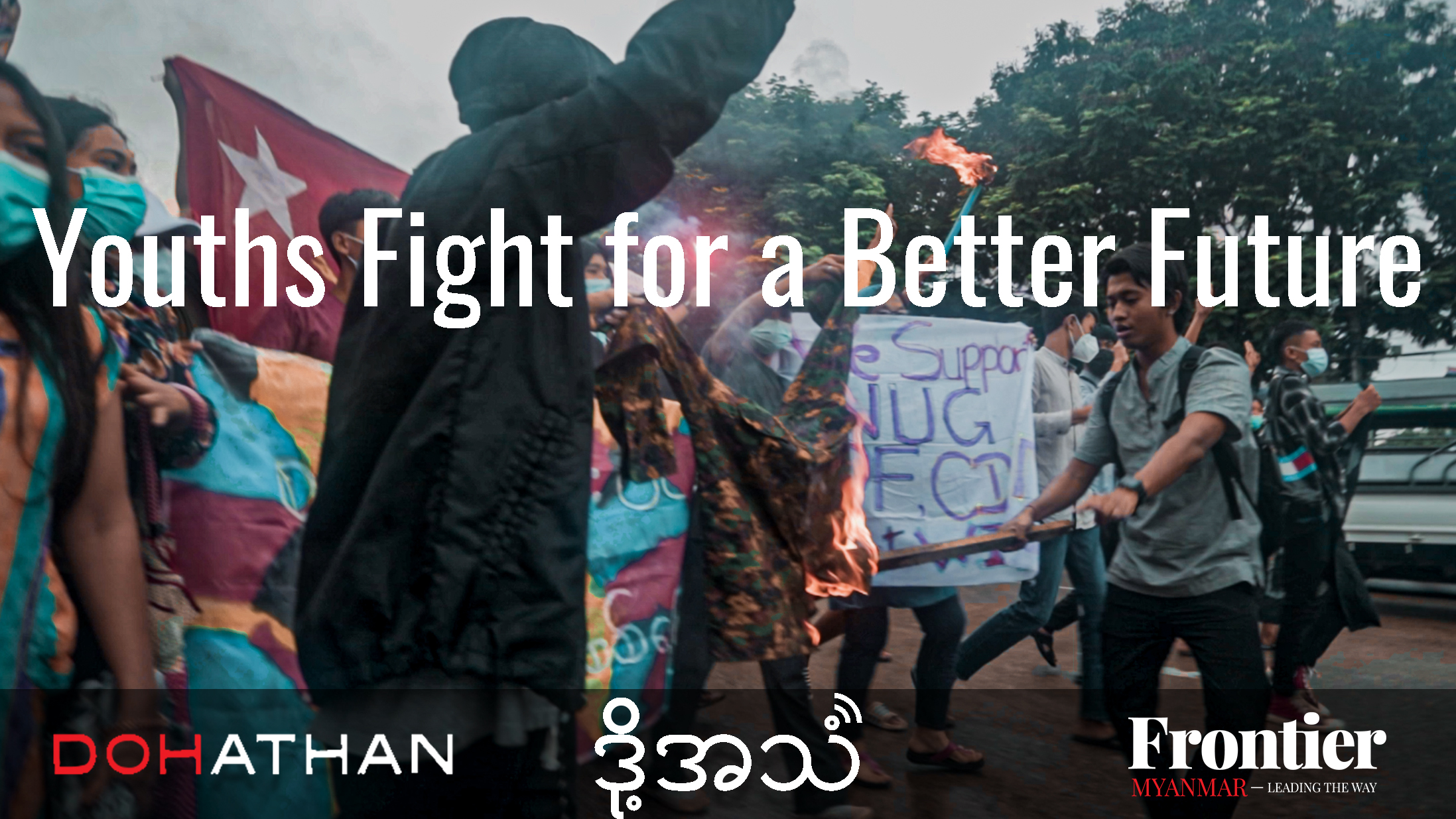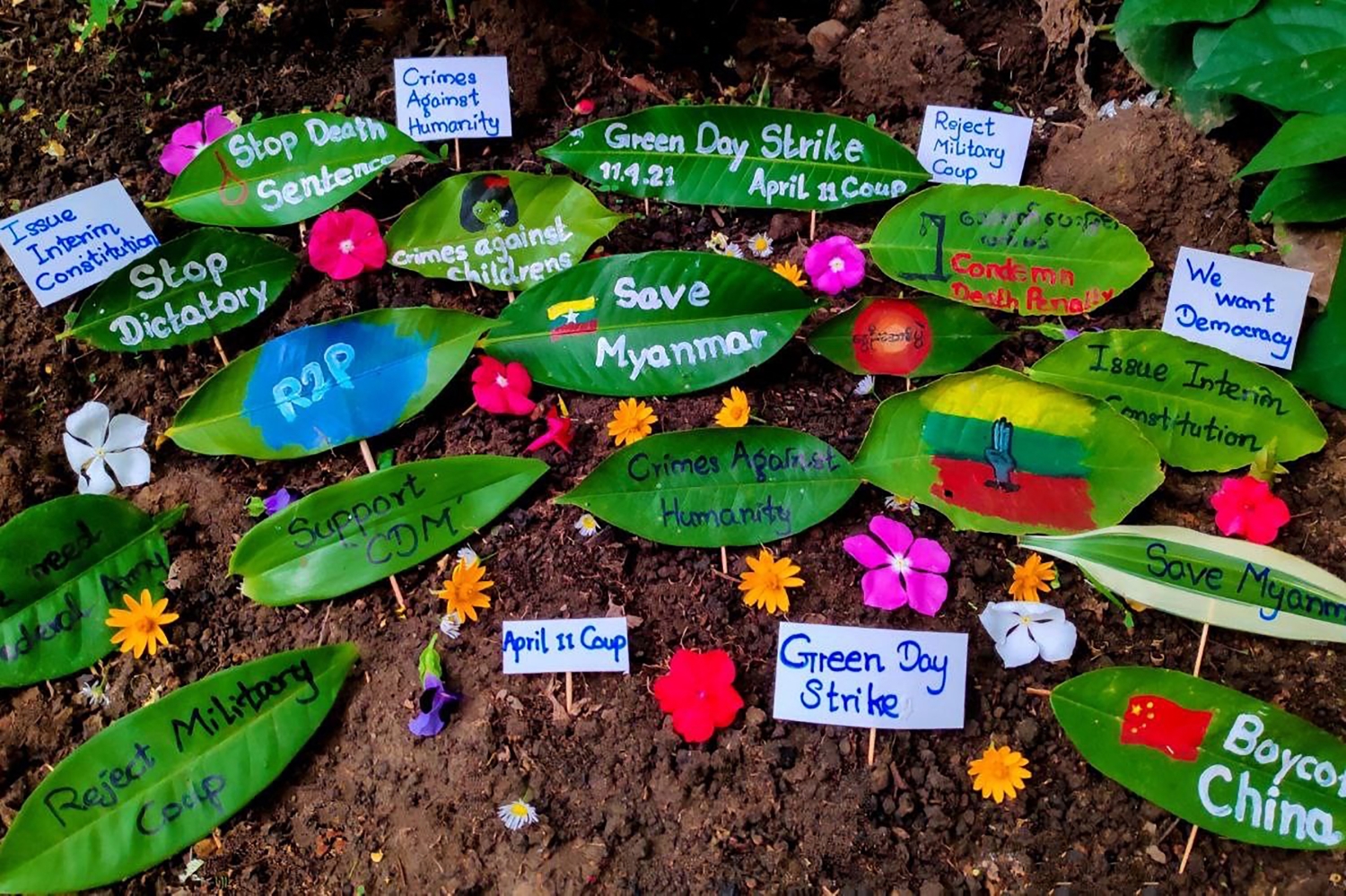Young advocates mature as the third Myanmar Youth Forum takes place in Sagaing Region, hoping to carry a new generation of voices to the nation’s leadership.
By THI RI HAN | FRONTIER
Young and ambitious activists were out in full force this month as the third biennial Myanmar Youth Forum was held in Monywa, Sagaing Region. Building on its achievements over the past four years, participants from all over the country convened to tackle a targeted agenda of issues that affect the nation’s young people: drug use; human rights; environmental change; youth and education policy; and Myanmar’s ongoing peace process.
“The challenges of today’s youth in Myanmar include a lack of educational standards, scarcity of job opportunities and the government’s lack of a policy or plan to benefit the youth,” said Ko Moe Thwe, president of the pro-democracy group Generation Wave. “After 2010, the younger generations were freer to meet and take part in associations and organisations. They began to learn more about their own issues, but the government has shown little interest in the problems of the young,” he said.
Participants said, however, that there are signs of improvement. While they are not yet convinced that the new government — led by Aung San San Kyi and her party, the National League for Democracy (NLD) — is committed to advancing the rights and participation of Myanmar’s youth, the political environment now is far more conducive to advocacy than it was just a few years ago.
“When we held the first forum, we had to take a little risk,” recalled Ko Thet Swe Win, a member of the forum’s networking and outreach team. “It was 2012, under the first elected government of President Thein Sein, who had promised to fulfill the people’s wishes.”
Support more independent journalism like this. Sign up to be a Frontier member.
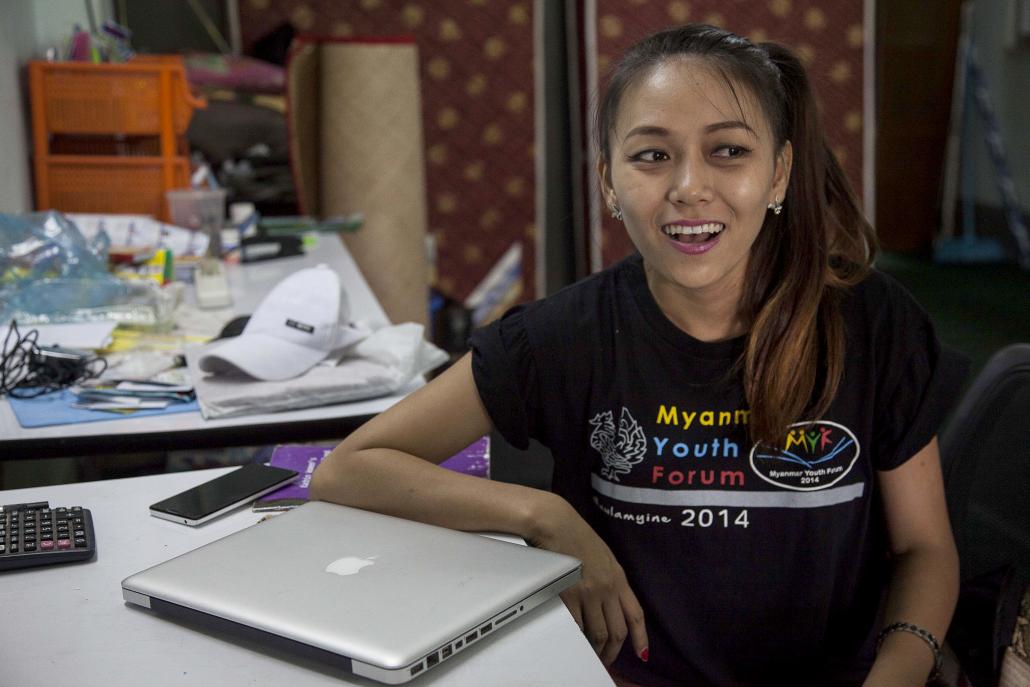
A volunteer at the Myanmar Youth Forum. (Theint Mon Soe / Frontier)
The first youth forum was held at a monastery in Hmawbi, Yangon Region, where a small group of youth leaders — some who had just served as Myanmar’s delegates to the Asian Youth Forum in Bangkok — rounded up inspiring young people from all over the country. It was a relatively small event, but just two years later its organisers had garnered the government’s attention. When the second event was held in the Mon State capital of Mawlamyine in 2014, it was attended by a Union minister and supported by the central government.
This year’s forum was attended by Dr Win Myat Aye, the Union minister for social welfare, relief and resettlement. Participants saw his presence as a sign of the NLD’s commitment to addressing the concerns of younger generations. Adding to their confidence was the fact that several participants in earlier youth forums had been elected as parliamentarians in last year’s polls. Some of them, such as Arakan National Party MP Ma Htoo May, came back for this year’s event. Ma Kyu Lei Thu, a program officer at the Pyinya Institute for Education, expressed hope that the forum would serve as a “channel to carry the voices of the youth” directly to lawmakers.
At the local level, youth advocates are still figuring out how to best implement ideas discussed at the forum; some participants said that after the last event, local civil society organisations lacked the capacity to carry out plans that were workshopped with the national network.
“Task forces were set up to implement the results of the Monywa forum [in 2016],” said Salai Samuel Hmung, an ethnic Chin training officer at the NGO Global Platforms who served as a forum facilitator.
“There are differences in the degree of success… according to the situation in each state and region,” he told Frontier. “In some regions [participants] were able to put things into practice when they got back home, but in Chin State the CSOs are too weak to do that.”
Samuel said that while not all participants are able to carry out their action plans, they are fairly representative of the youth cultures in their respective states and regions. Of course, he said, not every interest can be wholly represented, but the delegates are well attuned to the needs and opinions of their communities.
Of great concern to young people throughout the country is the future of the peace process, according to Thet Swe Win. He said that the outcome of the peace negotiations, which were initiated by the previous military-backed government in an effort to end Myanmar’s decades-long civil conflict, will have an impact on several generations to come.
“It is the young people who must untangle the mess left by the older people, and it is the young people who must implement the results of these negotiations when they grow older,” Thet Swe Win said, arguing for greater youth representation in peace talks and political dialogue. He said that young peace advocates had long requested to play a greater role, “not just as observers but as participants.”
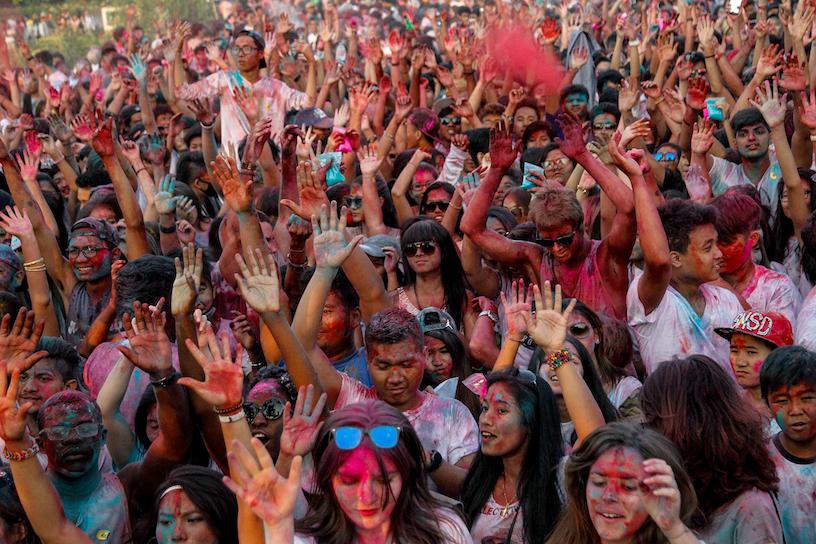
Young people celebrate at the Myanmar Colour Festival in Yangon. (Theint Mon Soe / Frontier)
This year’s young delegates hope the new NLD government will be more attentive to their needs than the last; Thet Swe Win said the Thein Sein government made a number of promises it failed to keep, such as the establishment of a Myanmar Youth Centre. A plot of land had been allocated for the building, he said, but was sold off by the outgoing government just before the end of its term early this year, leading to a policy of “non-cooperation” until the new government assumed power.
The NLD has thus far disappointed the youth advocates by not fulfilling their request to create a youth affairs ministry. State Counsellor Suu Kyi reportedly told representatives that if all ministries carried out their work properly there would be no need for a specialised government body to address youth-related issues.
Despite the letdown, Thet Swe Win said that younger generations are optimistic about the future.
“At present, for the youth, we now have the kind of government we have hoped for for so long,” he said. “Now is an exciting time to be young.”
Top photo: Ye Aung Thu / AFP


